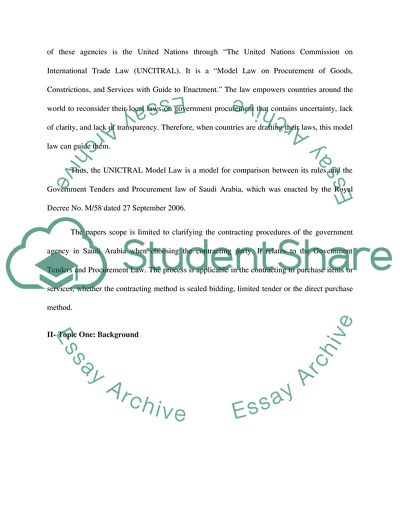Cite this document
(“Methods and Procedures to Form the Government Contracts in Saudi Essay”, n.d.)
Methods and Procedures to Form the Government Contracts in Saudi Essay. Retrieved from https://studentshare.org/law/1686788-methods-and-procedures-to-form-the-government-contracts-in-saudi-arabia-and-the-unictral-rules
Methods and Procedures to Form the Government Contracts in Saudi Essay. Retrieved from https://studentshare.org/law/1686788-methods-and-procedures-to-form-the-government-contracts-in-saudi-arabia-and-the-unictral-rules
(Methods and Procedures to Form the Government Contracts in Saudi Essay)
Methods and Procedures to Form the Government Contracts in Saudi Essay. https://studentshare.org/law/1686788-methods-and-procedures-to-form-the-government-contracts-in-saudi-arabia-and-the-unictral-rules.
Methods and Procedures to Form the Government Contracts in Saudi Essay. https://studentshare.org/law/1686788-methods-and-procedures-to-form-the-government-contracts-in-saudi-arabia-and-the-unictral-rules.
“Methods and Procedures to Form the Government Contracts in Saudi Essay”, n.d. https://studentshare.org/law/1686788-methods-and-procedures-to-form-the-government-contracts-in-saudi-arabia-and-the-unictral-rules.


